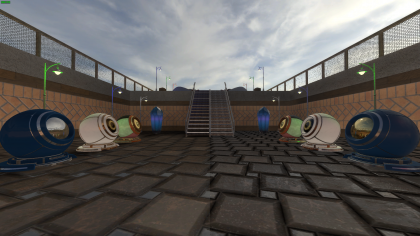Physically Based Rendering: Difference between revisions
Jump to navigation
Jump to search
(Added comparison image.) |
|||
| Line 7: | Line 7: | ||
{{source|4}} does not ship with PBR by default. However, there have been attempts to address the absence of it. | {{source|4}} does not ship with PBR by default. However, there have been attempts to address the absence of it. | ||
<br> | <br> | ||
There are two third-party {{source|3.1|nt=2}} branch that uses PBR: | There are two third-party {{source|3.1|nt=2}} branch that support and uses PBR: | ||
*{{tfbranch|4}} | *{{tfbranch|4}} | ||
*{{stratabranch|4}} | *{{stratabranch|4}} | ||
Revision as of 01:24, 9 May 2023
Physically based rendering (PBR) is an approach in computer graphics that seeks to render graphics in a way that more accurately models the flow of light in the real world. Many PBR pipelines have the accurate simulation of photorealism as their goal. Feasible and quick approximations of the bidirectional reflectance distribution function and rendering equation are of mathematical importance in this field. Photogrammetry may be used to help discover and encode accurate optical properties of materials. Shaders may be used to implement PBR principles.
In Source
![]() Source does not ship with PBR by default. However, there have been attempts to address the absence of it.
Source does not ship with PBR by default. However, there have been attempts to address the absence of it.
There are two third-party Source 1 engine branch that support and uses PBR:
